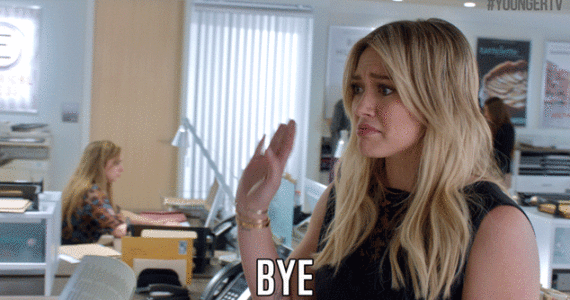It’s natural to want to make connections wherever you go. As humans, many of us are hardwired to find common ground and develop relationships that foster a sense of belonging. With Americans spending nearly 30% of each year working, the desire to forge bonds at work is a fundamental and emotional human need. However, the line between work and personal friendships isn’t always so definitive when it comes to professional spaces.
Mutually beneficial work relationships are important for a business’s success. According to research by Qualtrics, employees who have healthy social connections at work are also much more likely to be engaged. However, boundaries are still necessary to ensure no one toes the line of professionalism – or, worse, does or says something that might land them in HR.
Whether you’re working remotely, on a hybrid model, or fully in-office, here are a few things to consider in navigating the line between work and personal friendships.
There’s an art to making new connections in professional settings.

Having a strong network is one of the most invaluable resources for helping you throughout your career. Solid professional connections can provide guidance, referrals, and even pivotal advice when it’s time to move on. Plus, you’ll have an entire network of people who support you along the journey.
We’ve all been the new person at work at some point in our careers. While you hope for a welcoming environment that embraces you with ease, sometimes, you have to be the one to make the first move. When you want to be proactive about your work relationships, here are a few ways to take the angst out of relationship building:
- Be your authentic self–within reason–but tap into the more outgoing aspects of your personality. While this may come naturally to extroverts, it’s also a healthy challenge for introverts, too.
- Find commonalities between you and your coworkers to make starting conversations more genuine. You and a coworker may enjoy the same Netflix series or are passionate about a particular hobby. Discussing shared interests can serve as the building blocks for you and your coworkers to get to know each other.
- Don’t be afraid to extend an outing invite. Lunch or coffee chats can add depth to the relationship while learning about each other outside of the workplace.
One important note with fostering workplace relationships, specifically related to toeing the line between work and personal friendships, is to keep your connection building above board. Throughout your career, you may find the occasional work friend who can actually become a personal friend, but this is the exception, not the rule.
Local happy hours are legendary for being the hub of off-site professional connections. However, not everyone drinks, and centering your networking around alcohol isn’t always the best idea. Instead, consider making the most of lunch outings or opportunities to grab coffee together. You may also strengthen the connection by attending events together, such as industry meet-ups or conferences.
Maintaining healthy boundaries in work relationships is a must.

Once you’ve started cultivating your work tribe, it’s important to have standards by which you operate. Boundaries are the key to healthy relationships, whether for work or in your personal life. Establishing and honoring boundaries as you nurture relationships can help you create authentic work relationships that don’t cross the line.
For those who prefer to play it safe, restricting your work connections to office hours and work functions is the best way to go. Engaging your work friends can also be as innocent as planning to participate in shared interests outside of work. Ultimately, staying curious about your coworkers can help you gauge the right way to engage in the relationship.
Another aspect worth keeping in mind is the consideration of trust and time boundaries. Under few circumstances is it a good idea to divulge too much personal information to a work friend. Although transparency builds bridges between people, sometimes, sharing more than necessary can lead to problems in the long run. Similarly, calling or texting work friends late at night or on the weekends is a no-go. While you may innocently want to share a funny meme, depending on the nature of the relationship, it may be received as inappropriate. Plus, if you want your non-working hours respected, leading by example is a great place to start.
A few other helpful tips for maintaining healthy work friendships include the following:
- Check in with your professional connections. While your personal friends typically give you more grace in lapses in communication, professional connections aren’t always so forgiving. A quick LinkedIn message to say hello periodically goes a long way. Make sure you’re not only reaching out to people when you need them.
- Give value as you receive it. Whenever I meet with someone I want to work with professionally, I always ask, “Is there anything you’re working on or any way that I can support you in this season?” It’s a simple yet profound way to say, “Thank you for being here for me. I, too, want to be of service to you.” No one wants to feel like they’re being used all the time. Try to show up however you can for those who walk your career path alongside you.
If nothing else, remember: your work friends are not your friends. That’s not to say that you won’t find a friend or two along the way. However, most of your work connections are the result of a shared employer, project, or goal. Even with the best intentions, office politics can come back to bite you if you’re not mindful of what you share and with whom.
Be mindful to navigate the shift in relationship dynamics over time.

On more than one occasion, I can recall the awkward shift of a work friendship when I or a coworker I’d grown close to left the company. At best, they or I were quitting the job on our own terms for a better opportunity. At its worst, one of us had either been laid off or fired.
The reality about any relationship is that there’s a likelihood that they won’t last forever. However, because work friendships are typically centered around a shared experience – the company you both work for – these relationships can feel incredibly fragile when people move on.
Don’t take it personally if you never hear from someone after they leave a company. Depending on the circumstances of their departure, feelings of shame, embarrassment, and resentment might make it difficult for them to reach out. If you feel compelled, it rarely hurts to reach out to check on them in the days that follow their departure.
From personal experience, having that one coworker who checks in while everyone else moves on in business-as-usual mode makes a world of difference. It may feel awkward to have gone to lunch earlier that week to potentially never see each other again. However, that’s the reality of workplace relationships. Once the connecting element–the organization–leaves the equation, chances are your relationship will change, too.
The line between work and personal friendships isn’t as thin as some might think. Making friends in the workplace should be met with optimism and a genuine desire to learn from the people around you. There’s no clear-cut answer for the best way to maneuver getting a bit more personal with work friends. However, having boundaries and being intentional about fostering connections, at work or otherwise, can lead to long-lasting relationships.
Follow MEFeater on Twitter, Instagram, Facebook, and Pinterest for more updates!










